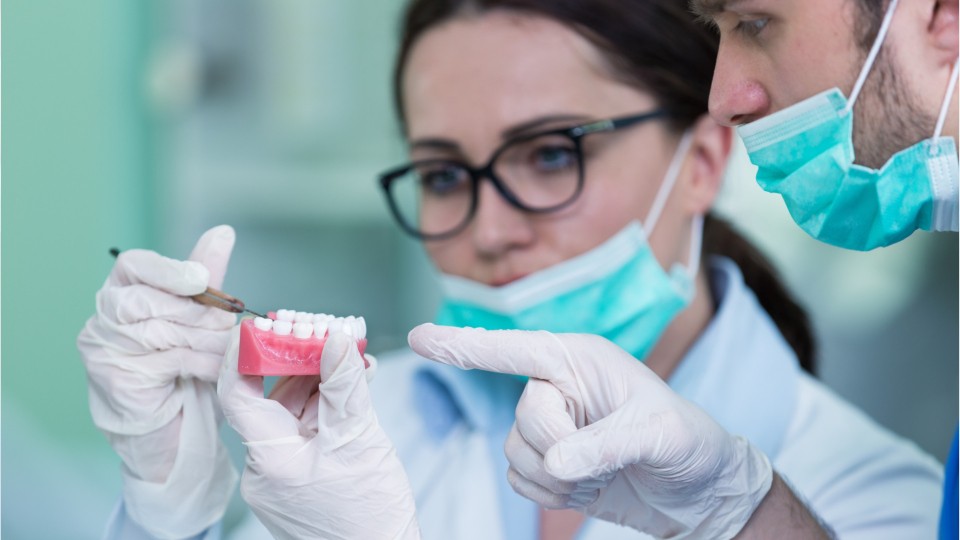Prosthodontists
DDS (Doctor of Dental Surgery), Denturist, Maxillofacial Prosthodontist, Prosthodontist
What they do:
Diagnose, treat, rehabilitate, design, and fit prostheses that maintain oral function, health, and appearance for patients with clinical conditions associated with teeth, oral and maxillofacial tissues, or the jaw.
On the job, you would:
- Examine patients to diagnose oral health conditions and diseases.
- Fit prostheses to patients, making any necessary adjustments and modifications.
- Replace missing teeth and associated oral structures with permanent fixtures, such as implant-supported prostheses, crowns and bridges, or removable fixtures, such as dentures.
Knowledge
Health
- medicine and dentistry
Business
- customer service
- management
Arts and Humanities
- English language
Math and Science
- biology
Skills
Basic Skills
- listening to others, not interrupting, and asking good questions
- talking to others
Problem Solving
- noticing a problem and figuring out the best way to solve it
Social
- understanding people's reactions
- looking for ways to help people
Abilities
Verbal
- communicate by speaking
- listen and understand what people say
Hand and Finger Use
- put together small parts with your fingers
- hold or move items with your hands
Ideas and Logic
- notice when problems happen
- make general rules or come up with answers from lots of detailed information
Attention
- pay attention to something without being distracted
Personality
People interested in this work like activities that include practical, hands-on problems and solutions.
They do well at jobs that need:
- Empathy
- Self-Control
- Achievement Orientation
- Cooperation
- Intellectual Curiosity
- Cautiousness
Technology
You might use software like this on the job:
Medical software
- Henry Schein Dentrix
- Patterson Dental Supply Patterson EagleSoft
Graphics or photo imaging software
- Image management software
Operating system software
- Apple iOS
Education
Education: (rated 5 of 5)
post-doctoral training or
doctoral degree
usually needed
doctoral degree
usually needed
Explore More
- Dentists, General
- Oral & Maxillofacial Surgeons
- Orthodontists
- Orthopedic Surgeons
- Pediatric Surgeons
You might like a career in one of these industries:
See more details at O*NET OnLine about Prosthodontists.





